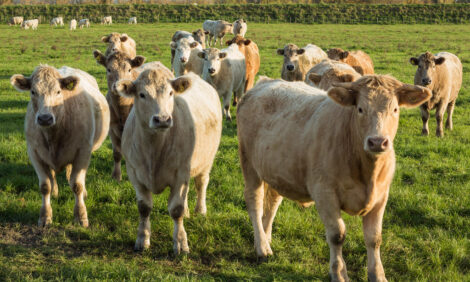



Study Shows Consumers Want to Know How Food is Produced
UK - An independent study shows that eight out of 10 UK consumers want to know which farm system has been used to produce their meat and dairy products.The UK government is opposed to labelling meat and dairy products by method of production, and is pushing the European Commission to keep consumers in the dark about where their food actually comes from, according to Compassion in World Farming.
However, the animal welfare group said that 83 per cent of UK consumers want method of production labelling, which clearly identifies the farm system used to produce the food, extended to meat and dairy products.
Almost as many, 79 per cent, said farm animal welfare was important when deciding which food products to buy.
The research was commissioned by Labelling Matters, a joint project of Compassion in World Farming, RSPCA, Soil Association and World Society for the Protection of Animals (WSPA.
It found that the welfare of farm animals was an important factor when choosing food and that there is a strong demand by UK shoppers for mandatory method of production labelling.
Julia Wrathall, Head of Farm Animals at the RSPCA, said: “Despite clear method of production labelling of eggs and new EU legislation to label fish by method of catch, consumers are still kept in the dark about the farm systems used to produce the vast majority of their meat and dairy products.”
Method of production labelling has been legally required for eggs sold in the EU since 2004.
Since then all eggs sold in shells have had to be labelled as ‘eggs from caged hens’, ‘barn eggs’, ‘free range’, or ‘organic’.
The change has dramatically increased the number of eggs produced in cage-free systems in the UK.
Method of catch labelling for fish was agreed by the EU in June 2013.
Julia Wrathall said: “It can be extremely difficult for consumers trying to buy higher welfare products.
“So many meat and dairy labels use misleading language and images to suggest good welfare even when the animals have been reared in standard intensive systems.
“As we have seen with eggs, consumers have the power to drive improvements in farm systems, but they can only do this if there is honest, comparable information on products they buy.”
TheCattleSite News Desk


